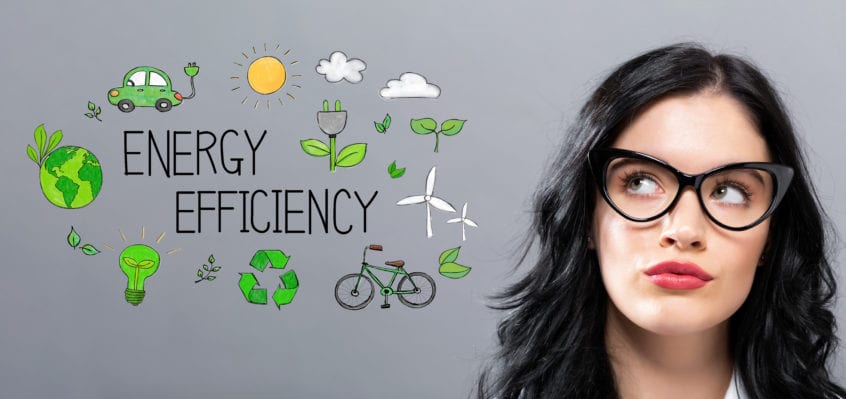Every homeowner can improve the energy efficiency of their home by installing energy efficient technology, sealing air leaks, and reducing usage.
Research has found that highly energy efficient houses across the country sell for a premium of 3.55 to upwards of 9% compared to average homes. According to the NAHB, the home features most buyers wanted were energy efficient appliances, windows, and heating and cooling.
Energy efficient homes usually sell at a premium because they offer reduced utility bills, avoidance of longer-term maintenance expenses, and a reduced carbon footprint on the environment. The perception is that it will be a more affordable property to own and operate because it is energy efficient.
On average, the majority of homeowner’s energy spending is lighting and electricity, heating, and water heating expenses. Take a look at your water bill, your electricity bill or your gas bill, and you will notice two things:
- The cost per unit, per Kwh, and per therm has gone up.
- As your usage increases, your bill increases.
There are several ways you could save money by making your home more energy efficient.
Water
- Low-flow fixtures for the bathroom such as shower, faucets, and toilets conserve water. Almost 20 percent of the average American’s energy is used to heat water for showers and laundry.
- Choose the right type of washing machine. Most front-load washing machines will save money over time and are more environmentally friendly. They use less energy, water, and detergent than top load washers. New Energy Star compliant washers use 25 percent less energy and approximately 70 percent less water than traditional washers.
- Tankless water heaters are 24 – 34 percent more energy efficient than traditional models that save you money each year. They last twice as long as storage water heaters and never run out of hot water.
- Install a Rainwater Tank. Naturally collected rainwater is ideal for watering your garden.
Appliances
- Buy energy efficient appliances. The ENERGY STAR is a guarantee that the appliance will consume energy efficiently during use compared to standard models. Energy efficient appliances can have higher purchase prices, but their operating costs are 9-25% lower than conventional models. Considering that major appliances represent about 37% of the electricity that your home uses, that is a significant saving.
- Use the energy-saving cycle or no-heat feature when available on washers, dryers, and dishwashers.
Heating and cooling
- Close external windows and doors.
- Shade your windows.
- Turn on the air conditioner or furnace early. Pre-empt the heat or cold rather than waiting until your home is already hot or cold.
- Install a programmable timer and thermostat controls, which can automatically turn off or reduce heating and cooling when you are asleep or away. Those that are connected with a “smart” system allow you to control the temperature from wherever you are on your computer or smartphone.
- Install ceiling fans because they are much cheaper than air conditioning and have less impact environmentally.
- Consider upgrading HVAC equipment to ENERGY STAR compliant models. Heating and cooling make up roughly 40% of the average consumer’s energy bill.
Insulation, Seals & Weatherstrips
- Insulating your home can help you to keep the cold air out, and the hot air inside. Insulation covers large areas such as walls, basement, attic, floors, and the ceiling.
- You can leak-proof your home by making sure doors and windows are properly sealed. By sealing up areas around your home, particularly around doors and windows, that let air in or out, you will be reducing strain on your air conditioner. An older home can lose as much as 40% of the heat from drafts and air leakage.
- Seal your chimney with a damper to keep heat from escaping in winter when the fireplace isn’t in use and help stop hot air from coming in during warmer months.
Solar Panels
- Solar energy can be replenished and renewed to provide a clean alternative compared to traditional fossil fuels. It does not burn fuel or release any greenhouse gases. It is far more effective at converting energy into electricity than either hydro or fossil fuel. You can significantly reduce your energy use by installing solar panels, which in turn decreases your utility bill.
Tips if you are considering going solar:
- Financial incentive programs are available to help make solar technology affordable. Find out if you qualify for federal, state or local tax credits and rebates.
- You don’t have to live in a sunshine state to benefit from solar. In less sunny regions where electric bills run high, you can still obtain significant savings by going solar.
- Check around, do some research, and seek out testimonials when choosing an installation company. It’s essential that you select the best solar company for your situation.
- At SunState Solar, we can cut through all the noise and make going solar simple and easy. Schedule your complimentary consultation today!

